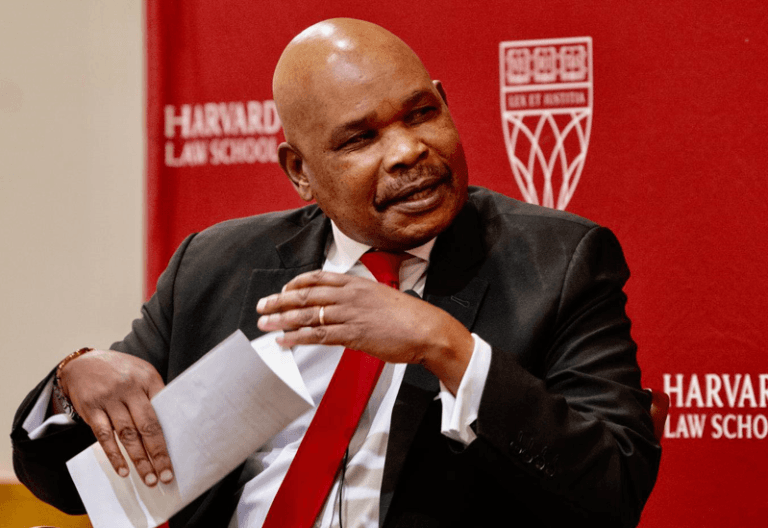We're loading the full news article for you. This includes the article content, images, author information, and related articles.
A proposal by a senior presidential advisor to close and deport foreign companies engaging in abusive practices has ignited a national debate, pitting the urgent need for worker protection against Kenya's drive to attract foreign investment.

NAIROBI, KENYA – A call by Professor Makau Mutua, Senior Advisor on Constitutional Affairs to President William Ruto, to shut down foreign-owned companies whose staff abuse Kenyan workers has sparked a fierce debate on corporate accountability and its implications for the nation's economy. The proposal, made on Monday, 17 November 2025, via a social media post, advocates for the closure of offending firms and the deportation of their entire foreign staff as the “most effective way” to combat racism and worker mistreatment.
Mutua’s statement was a direct reaction to a viral video that surfaced over the weekend, allegedly showing a Chinese manager assaulting a Kenyan employee at the TCM Mabati Factory in Eldoret. “The racist, evil, and primitive abuse I saw on tape has no other effective cure. This episode isn't a one-off,” Mutua stated, articulating a sentiment of growing public frustration.
The incident has drawn sharp condemnation from the Central Organisation of Trade Unions (COTU), Kenya's largest federation of trade unions. In a letter to the Cabinet Secretary for Interior, Kipchumba Murkomen, dated 15 November 2025, COTU Secretary-General Francis Atwoli demanded the immediate deportation of the individual in the video. Atwoli described the assault as a “gross violation of the rights and dignity” of Kenyan workers and highlighted a “worsening pattern” of abuse within some foreign-run enterprises.
COTU also referenced another recent case at an Export Processing Zone (EPZ) where a different Chinese investor, Xiao Jianzhoun, was accused of forcing employees to sing Chinese songs and endure harsh working conditions, including long hours without overtime pay and intimidation.
Professor Mutua's hardline stance raises critical questions for Kenya's economic policy, which heavily relies on Foreign Direct Investment (FDI) to spur growth. While FDI inflows to Kenya saw a marginal decline of 0.1% to USD 1.503 billion in 2024 from USD 1.504 billion in 2023, it remains a vital component of the economy, facilitating technology transfer, job creation, and infrastructure development. According to the Kenya National Bureau of Statistics, the total stock of FDI in the country rose by 8.5% to KSh 1.457 trillion by the end of 2023.
Business leaders argue that while accountability is non-negotiable, sweeping actions like company closures could deter potential investors who prioritize stability and predictable regulatory environments. The Kenya Private Sector Alliance (KEPSA), which represents over a million local and foreign businesses, has consistently advocated for a favorable business environment to attract investment. While KEPSA has not issued a direct response to Mutua's proposal, its mandate involves engaging the government to create predictable policies that foster growth. A sudden shift towards punitive closures could be perceived as a significant risk, potentially leading to capital flight and undermining efforts to position Kenya as a competitive investment hub in East Africa.
Kenya's Companies Act of 2015 and the forthcoming Draft Companies (Foreign Companies) Regulations of 2024 provide a framework for the registration and operation of foreign firms. These laws mandate that foreign companies appoint a local representative and maintain a registered office in Kenya. The regulations also outline procedures for cessation of business, requiring a company to notify the Registrar within a month of ceasing operations or being deregistered in its country of origin.
However, critics and labour organizations argue that the existing legal penalties for non-compliance or misconduct are not a sufficient deterrent. COTU has repeatedly called for stronger enforcement, more frequent inspections, and robust monitoring of foreign-owned firms to ensure they respect the dignity and rights of Kenyan workers. Professor Mutua's proposal, while drastic, reflects a conviction that current mechanisms are failing to adequately address the problem of worker abuse.
Appointed as Senior Advisor on Constitutional Affairs on 30 April 2025, Professor Mutua's role involves advising the President on constitutional matters, legal reforms, and human rights. His strong statement, therefore, carries significant weight, signaling a potential shift in executive thinking on corporate responsibility. The coming weeks will likely see intense dialogue between the government, trade unions, and the private sector to find a sustainable solution that protects Kenyan workers without crippling the foreign investment essential for the nation's economic agenda.
Keep the conversation in one place—threads here stay linked to the story and in the forums.
Sign in to start a discussion
Start a conversation about this story and keep it linked here.
Other hot threads
E-sports and Gaming Community in Kenya
Active 9 months ago
The Role of Technology in Modern Agriculture (AgriTech)
Active 9 months ago
Popular Recreational Activities Across Counties
Active 9 months ago
Investing in Youth Sports Development Programs
Active 9 months ago
Key figures and persons of interest featured in this article